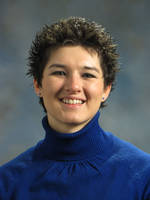|
Seven new research reports from ACE conference . These reports were presented recently to the Research Special Interest Group during an Association of Communication Excellence (ACE) conference in Des Moines, Iowa. You can read the abstracts here. Check with the authors about gaining access to full-text reports.
Rural broadband access is not enough. Current discussions about broadband service for rural areas need to move beyond the focus on access, according to a commentary we added recently to the ACDC collection. Joe Dales of Farms.com Professional Services suggested these goals be included:
“It can be argued that there is little economic value to society in developing a global leading edge broadband delivery network if its primary use is to download games or videos for rural children.” Citation: Rural broadband – an important platform How to cover rural-urban relations . A new professional development feature on the International Federation of Agricultural Journalists (IFAJ) web site offers skills and approaches reporters can use to cover rural-urban issues. This is the fourth in a series about rural-urban communicating. Authors Jim Evans, University of Illinois, and Owen Roberts, University of Guelph, described three types of rural-urban media coverage:
Then they identified skills, tools and perspectives reporters can use with each. Posted at http://www.ifaj.org > Breaking News section Part 4. Preparing agricultural journalists/communicators for the 21st Century. Here are suggestions from Bob Kern, past president and Professional Award recipient of the Association for Communication Excellence, about how to design an undergraduate agricultural journalism/communications program for the 21st Century:
Read more of Dr. Kern’s suggestions and reasons he offers for emphasizing them. Thanks to all who contributed to this series. We also invite your thoughts and suggestions about how to prepare agricultural journalists/communicators for the 21st Century. Welcome to a new ACDC staff associate . We extend a special welcome to Karlie Elliott who joined the ACDC staff during May following her graduation from the agricultural communications program here, with a news-editorial emphasis. She is helping search for documents, review them and process them into the collection. This fall she will enter the masters degree program in the Department of Advertising here at the University of Illinois. Karlie brings a great combination of skills and interests to the Center. Farm-raised in east-central Illinois, she enjoys and appreciates the full range of activities related to food and agriculture, internationally. Her undergraduate program has involved study in Latin America and Europe. She has gained communications and leadership experience through internships with Caterpillar Inc. and the Office of Communications, U. S. Department of Agriculture. On campus, she has served as president of the College of ACES Council and of the Agricultural Communicators of Tomorrow (ACT) student organization, among other activities. As a junior she was recognized as Robert Harrison Outstanding Junior Leader of the College of ACES. Recently she received the Warren K. Wessels Achievement Award as outstanding senior in the College. Plenty more mid-year communicator activities July 31-August 4, 2009 August 1-5, 2009 August 23-27, 2009 August 26-28, 2009 August 31-September 4, 2009 Best regards and good searching. Please pass along your reactions, suggestions and ideas for the Agricultural Communications Documentation Center. Feel free to invite our help as you search for information. And please suggest (or send) agricultural communications documents we might add to this unique collection. We welcome them in hard copy (sent to Ag Com Documentation Center, 510 LIAC, 1101 S. Goodwin Avenue, Urbana, IL 61801) or in electronic format sent to docctr@library.uiuc.edu . Get in touch with us when you see interesting items in the ACDC collection and can’t gain full-text access through information in the citation, or through online searching. We will help you gain access. |
2009-06-15
